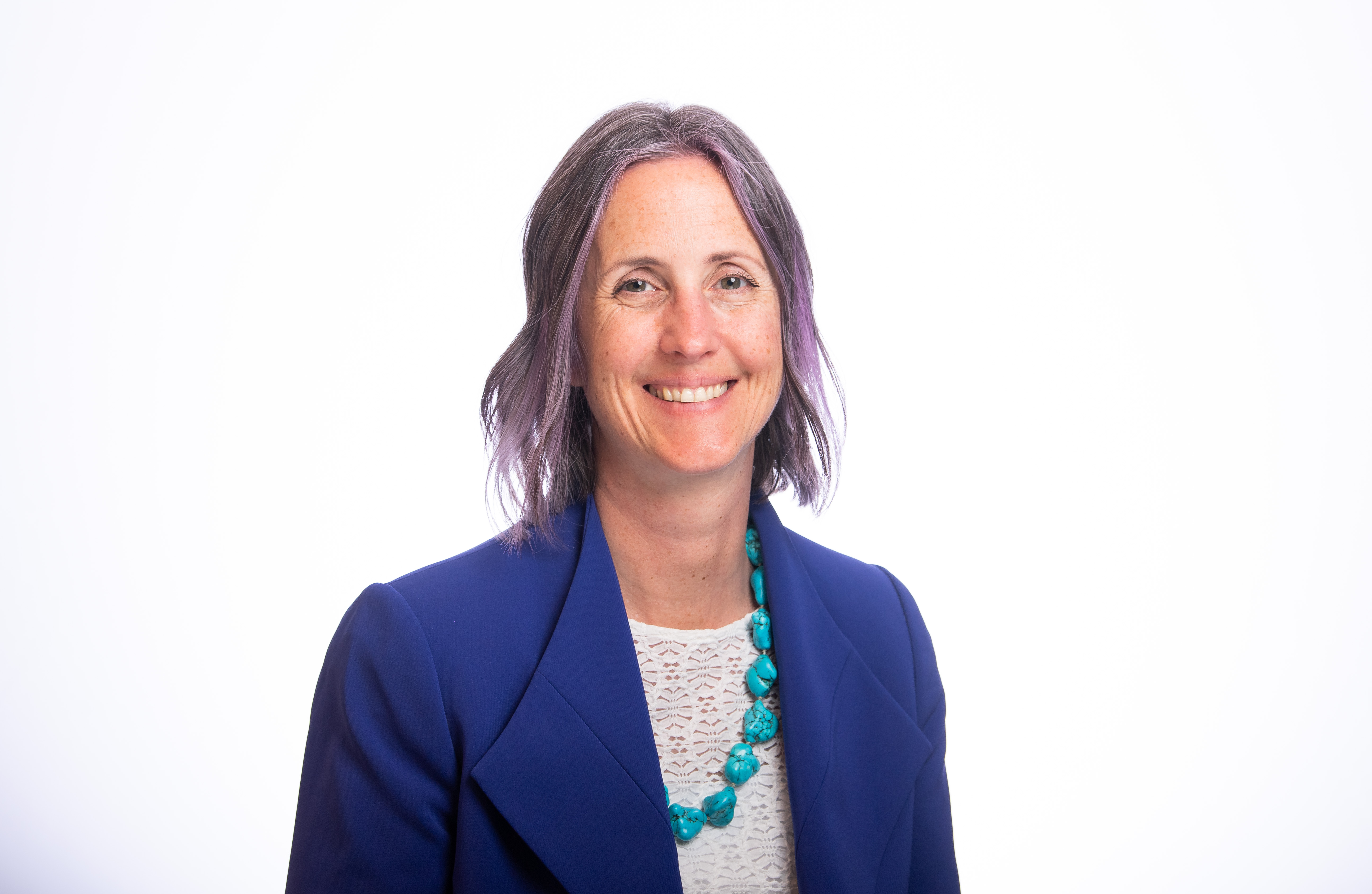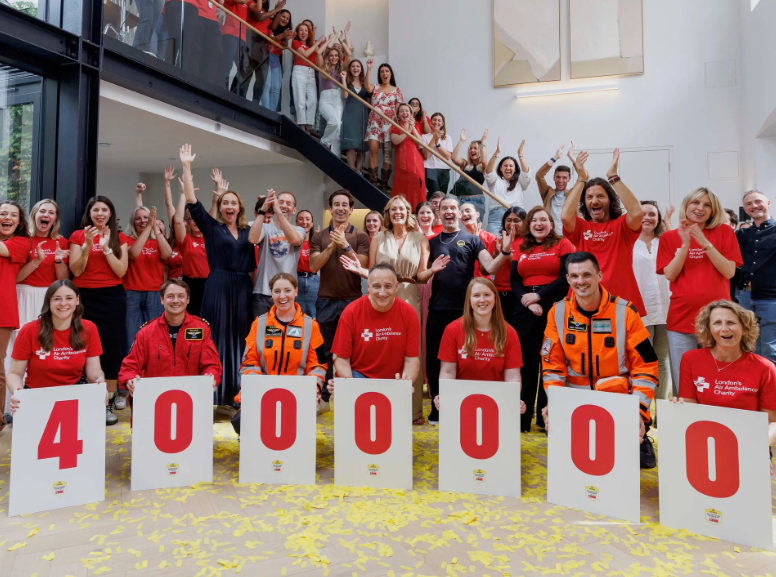Third-sector organisations play an essential role in UK society driving better health, social and environmental outcomes across our communities but the current economic climate means that times are tough for both charities and for the people that they serve.
With more than168,000 charities registered across the nation, how do they navigate increasing challenges to raise funds needed and make the most impact for the people and causes they serve? Danni Heath, director of the Get A-Head Charitable Trust, shares her thoughts...
_______________________________________________________________
For charities to succeed in the current operating landscape, the focus must be on working collaboratively.
This is particularly true for smaller charities and over the last year this approach has been critical to our success.
At Get A-Head we work to improve the quality of life for patients suffering from head and neck diseases, particularly cancer.
We work with NHS Trusts, treatment centres, research facilities and support groups up and down the country funding ground-breaking research, high-tech equipment and education.
This year sees us celebrating our 30th anniversary and one of our key strategic priorities is to build on and develop our partnership working so that we have more impact.
The days of trying to be the biggest, best, most stand-out charity are long-gone. Of course, there is still a place for uniqueness for all charities but when the benefits of partnership working are so wide-ranging, joining forces with organisations that share a common purpose makes far more sense.
Increased fundraising potential and brand awareness
With the current cost-of-living crisis squeezing everyone’s finances, people are being far more cautious about how they spend their money and that includes how often and how much they donate to charity. Working collaboratively, however, can increase your charity’s capacity for fundraising and help you to reach a wider audience.
At Get A-Head, we recently partnered with UK charity Meningitis Now on one of our biggest fundraising campaigns for 2024 and it was a huge success, driving in excess of £150,000 of funds for the two charities.
We had been nominated as joint beneficiaries of an epic rowing challenge which was to be undertaken by the Brightsides – a team of four including West Midlands turkey farmer Rod Adlington, who is also a trustee of Meningitis Now.
Rod and his team successfully completed the 3,200-mile C-Map Atlantic Dash in February. It was a six-month long fundraising campaign which saw Get A-Head and Meningitis Now working collaboratively in the run-up to, during and after the event.
We shared resources to cut event costs and leverage support from private businesses, worked together to develop PR and social media campaigns to increase audience reach, drive donations and raise our profiles and we forged relationships internally and externally which means we’re likely to partner again in future. A win-win for everyone involved!
Knowledge sharing and driving change
In addition to increasing your fundraising potential, working collaboratively with other like-minded charities provides tremendous scope for broadening knowledge and sharing best practice. It can also help when it comes to driving change, influencing policy and delivering greater impact within your charity’s sector.
It comes down to a ‘two-minds are better than one’ approach I think and certainly if your charity is small then having the benefit of other charity professionals to share skills, information and even services can be hugely beneficial.
At Get A-Head, we have recently joined the Head and Neck Cancer UK Coalition CIC – an influential group of 15 organisations pooling their collective resources and all working for the common purpose of improving the lives of people with head and neck cancer.
I have joined in the role of director, which in time will undoubtedly help to widen our network and influence.
Together, we are working to drive greater awareness, fund research and influence change by shaping policy. Ultimately, we have a shared ambition and together we have a much stronger voice than working alone.
My advice to others working in a small charity would be to spend time looking for partnership opportunities. The benefits are huge.
Increased impact
In addition to increasing your fundraising reach, working collaboratively also gives opportunities to widen the reach of your impact.
For example, your organisation might be able to provide support to charities that deliver services to the same target audience.
This year alone Get A-Head has agreed to fund projects by two UK charities which will deliver a much wider impact to patients with head and neck diseases than we would have been able to by working independently.
The first of these charities is Swallows Head and Neck Cancer Charity which provides support groups for people recovering or dealing with the devastating effects of head and neck cancer such as loss of speech, problems with eating and drinking or prominent scarring.
Our financial support has already seen a new Support Group Lead appointed to help Swallows lead and manage groups nationally and over the course of the next 12 months, they will be establishing new support groups UK-wide.
The second charity is Oracle Head and Neck Cancer UK – an organisation dedicated to improving head and neck cancer patient outcomes through support of key programmes, raising awareness and addressing growing healthcare inequalities.
As part of this collaboration, Oracle will use funding provided by Get A-Head to lead a research project to try to understand and address the rising level of inequalities and barriers to early diagnosis in head and neck cancers across the UK.
The research will also be carried out in partnership with Queen Mary University and the outcomes will be used to drive greater awareness of the risks of head and neck diseases in areas across the UK where it is most needed.
In addition, further funding awarded by Get A-Head will support a national study coordinated by multiple stakeholders in the Head and Neck Cancer UK Coalition CIC to look at the feasibility of using existing cancer data sets to carry out an audit of head and neck cancer and identify areas for improvement in care.
These are just some examples of how Get A-Head is helping to drive national change through partnership working and my advice for those not already working in collaboration is to give it a go.
Seek out those organisations operating in the same sector as you, identify shared values and vision and then start the conservation. You won’t regret it!
If you’re struggling to know where to start – consider getting involved in the annual Small Charity Week Campaign which offers lots of support, training and space to share ideas with other small charities.
Latest News
-
Specialist healthcare transport charity ‘no longer financially viable’
-
Regulator probes global motorsport organisation’s road safety charity
-
Louise Dawtry: How to build a people-first culture
-
Fraud rates fall but fears of an increase in cyber attacks persist, survey finds
-
Government announces £1.5bn in arts, culture and heritage funding
-
Children’s Society director to take charge of Premier League club’s foundation
Charity Times video Q&A: In conversation with Hilda Hayo, CEO of Dementia UK
Charity Times editor, Lauren Weymouth, is joined by Dementia UK CEO, Hilda Hayo to discuss why the charity receives such high workplace satisfaction results, what a positive working culture looks like and the importance of lived experience among staff. The pair talk about challenges facing the charity, the impact felt by the pandemic and how it's striving to overcome obstacles and continue to be a highly impactful organisation for anybody affected by dementia.
Charity Times Awards 2023
Mitigating risk and reducing claims

The cost-of-living crisis is impacting charities in a number of ways, including the risks they take. Endsleigh Insurance’s* senior risk management consultant Scott Crichton joins Charity Times to discuss the ramifications of prioritising certain types of risk over others, the financial implications risk can have if not managed properly, and tips for charities to help manage those risks.
* Coming soon… Howden, the new name for Endsleigh.
* Coming soon… Howden, the new name for Endsleigh.
Better Society

© 2021 Perspective Publishing Privacy & Cookies













Recent Stories